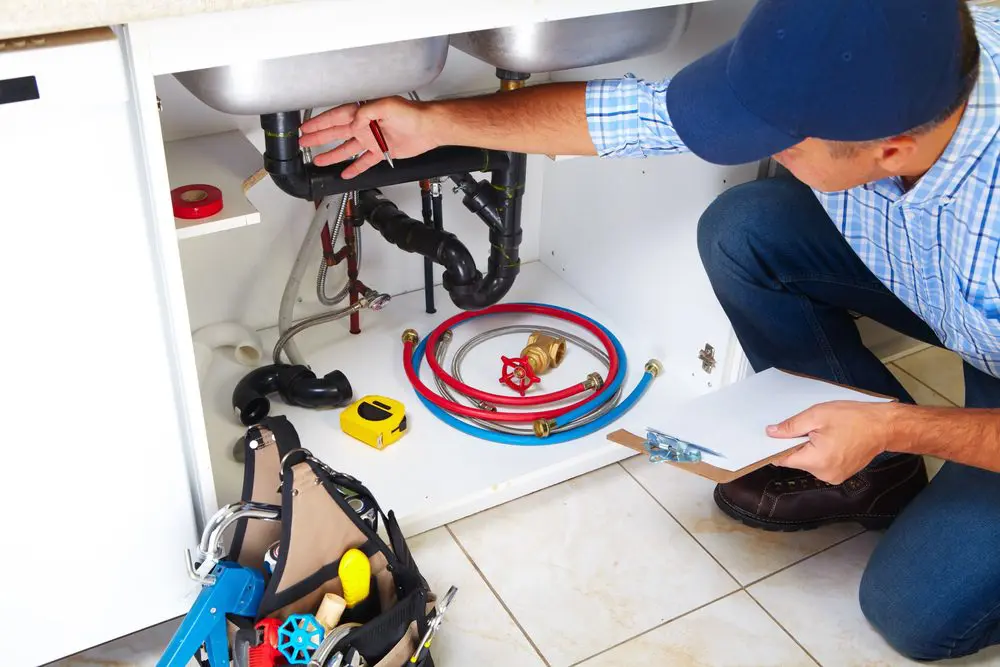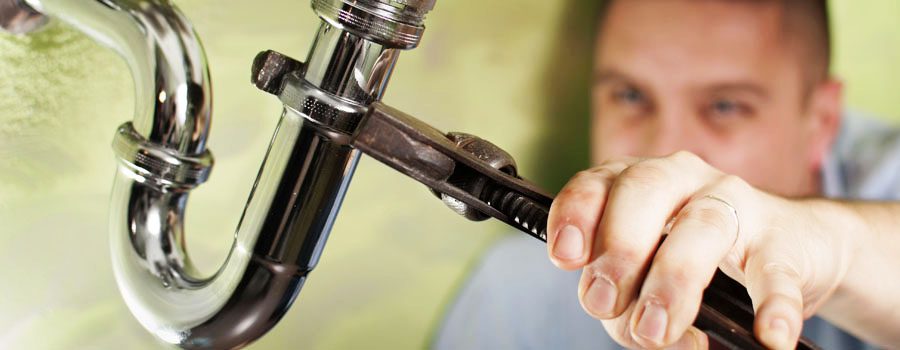Avoid Allowing The Six Habits Damage Your Plumbing
Avoid Allowing The Six Habits Damage Your Plumbing
Blog Article
They are making a few good pointers about Can Hard Water Ruin Your Appliances? as a whole in this content beneath.

The key to long-term appliances, unsurprisingly, appertains maintenance. There's no set rule that can ensure your plumbing home appliances a long wear, yet you can prevent unneeded damage as well as repairs by staying clear of negative plumbing practices.
You must quit doing these 6 things else you'll maintain calling your plumber over for minor faults.
Purging everything
Yes, your bathroom drain causes the sewers, but that does not suggest you ought to unload simply anything down the tubes. Lots of 'flushable' products are in fact excellent clog starters, for instance floss. Asides maintaining noticeable non-flushable products like cords as well as plastics out of your commode, you need to also avoid flushing cotton buds, menstrual items, wipes, daipers and condoms down the toilet drainpipe.
Putting oil in the sink
We know appropriately taking care of oil after a hearty meal is a discomfort. However simply putting it down the drain can do long-term harm to your pipelines. "The fat and also oil can clog your drainpipe severely sufficient to force you to call a plumber," explains Dawson. "Plumbing works best when it's well taken care of-- not abused with oil."
Utilizing excessive drainpipe cleaner
Making use of a drainpipe cleaner greater than one or two times a month is an indicator that something serious is going on within your pipes. Now, instead of facing the major concern, you choose a quick fix; a fizzy drainpipe cleaner. Rightfully, a drainpipe cleaner will deal with the blockage, however at what expense?
The chemicals in a drain cleaner can accelerate the rust of your pipes. Add that to whatever underlying problem is triggering the blockage as well as you may have to a serious trouble on your hands.
If you experience too many obstructions, call your emergency plumber instead of utilizing a drain cleaner.
Not washing dishes before filling them into the dish washer
it's called a dishwashing machine, but tossing in recipes, pots, as well as pans covered in huge food particles can in fact create some major damages to the home appliance, bring about long-term problems down the line. "Property owners may need to obtain their dishwasher repaired regularly if they don't wash their meals prior to packing, or at least remove larger food items," clarifies Audrey Monell, owner of Forrest Anderson Plumbing as well as Air Conditioner in Glendale, Arizona. "Food that gets stuck on meals creates the dishwasher to work harder, which can wear down components much faster, resulting in issues."
DIYing whatever
With plumbing, a stitch in time actually does conserve nine. You can avoid a fullblown plumbing emergency by calling your plumber at the correct time.
You might have found out a few plumbing hacks from your father, however you should certainly know where to draw the line and call an expert. For instance, you might have the ability to deal with a clog yourself, but you shouldn't try to alter a pipeline. You could mismatch pipes or overtighten a bolt, triggering even more injury and also damages than you assumed. Calling a plumber is a secure and also affordable decision.
Not altering your dishwasher hoses
One easy way to guarantee that you use your dishwasher for years is to replace the hose pipe at least once in five years. This likewise looks for cleaning equipment tubes.
With time, food fragments, soap as well as oil can develop blockages within your pipes. Replacing them on time will prevent any type of presure build up that can damage the internal workings of your dish washer or cleaning device.
A reinforced steel entwined pipe does a terrific task of lengthening your device's usage time.
No wintertime safety measures
Extreme weather conditions are bad for your pipelines, specifically if they're made of steel. You need to protect your subjected pipes, as well as your water container, even if you have a hot water heater. You should additionally turn off your yard hose shutoff and any other outside water networks. These networks are electrical outlets for cool; you pipes can begin to ice up from outdoors if you do not.
How Hard Water Damages Your Plumbing and Appliances
Hard water is no stranger to most households across America. This silent invader affects 85% of homes in the United States every day, wreaking havoc on pipes, plumbing fixtures, and water-using appliances.
Should you become a victim of hard water, you must understand exactly what it is and how it affects your plumbing and appliances. This will help you determine the correct measures to put in place to fix or prevent any problems that may arise.
First off, what exactly is “hard” water?
In short, “hard water” is used to describe water that contains relatively high amounts of dissolved minerals, primarily calcium and magnesium, and a host of trace metals. When rainwater falls from the sky (usually in a pure form), it absorbs the hardness minerals from rocks and soil, which changes it from soft to hard water.
What about my plumbing and appliances?
Mineral deposits from hard water can cause buildup on tubs, shower, sinks, faucets. But that’s only a small scratch of the surface. Those minerals can gradually build up inside pipes, fixtures, water heaters, washing machines, and dishwashers. Once they accumulate in those areas, they can clog pipes and create major problems throughout your plumbing system, from reduced water flow to increased pressure on pipes and fixtures.
This limescale buildup might affect some appliances, causing them to operate less efficiently and wear down faster. And the result? Higher energy bills, more (costly) plumbing replacements and repairs, and damaged appliances.
Keep in mind that certain types of plumbing are more susceptible to clogging than others. Copper, PVC, and PEX pipes are more resistant to hard water buildup and corrosion, but they can still get clogged or completely blocked by scale deposits.
How do I know if my water is hard?
White limescale buildup on plumbing fixtures (or any of the other signs mentioned above) is usually a good sign that your water is hard. If you suspect that you have hard water, you can simply shake up a small amount of dish soap and water in a closed container. If the mixture doesn’t create a lot of suds, you probably have hard water.
The most precise method, however, is to test your water with a DIY test kit (sold online or at local home centers or hardware stores) or send a water sample from your tap to a local lab to be tested. Be sure that you understand the nature of the test, the water condition being measured, and the significance of the test results.
Another way to obtain an estimate of water hardness is to check your annual water quality report to see if your water provider has reported any instance(s) of water hardness in your water supply.
https://www.springwellwater.com/how-hard-water-damages-your-plumbing-and-appliances/

Do you enjoy reading about Don’t Let an Earthquake Damage Your Plumbing? Place feedback further down. We will be pleased to hear your insights about this post. In hopes that you come back again in the future. Do you know somebody else who is inquisitive about Leak Detection and Repair Without Destroying Your Home? Feel free to share it. Thank you for your time. Visit again soon.
Browse Website Report this page